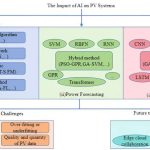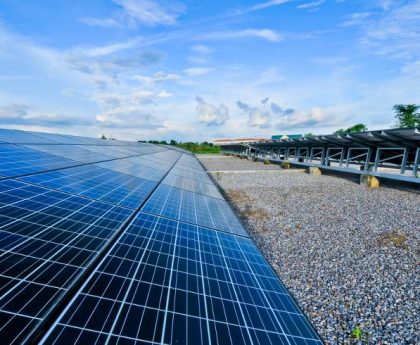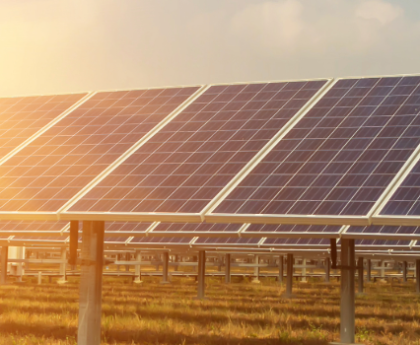In a significant step forward in renewable energy access in West Africa, Bayero University in Kano, Nigeria, has officially inaugurated a solar photovoltaic (PV) facility. This pioneering project marks a major milestone in the university’s commitment to sustainability and sets a model for future projects across the region. The solar power plant boasts a capacity of 79kWp, generating clean electricity through solar panels and storing excess energy in a 60kWh battery system.
Funded by the Economic Community of West African States’ (ECOWAS) Special Intervention Fund (ESIF) and implemented by the ECOWAS Centre for Renewable Energy & Energy Efficiency (ECREEE), this initiative represents a collaborative effort to drive sustainable energy adoption in West Africa.
This groundbreaking project is expected to deliver a multitude of benefits for the university community. First and foremost, it will ensure a reliable and sustainable source of electricity, reducing dependence on traditional, often unreliable, power grids.
This stable energy supply will not only enhance the university’s day-to-day operations but also create a platform for research and educational initiatives focused on renewable energy technologies.
Students will have the potential to gain valuable hands-on learning opportunities. They could participate in projects related to system monitoring, data analysis, or even exploring the integration of solar energy concepts into their existing STEM(Science, Technology, Engineering, and Mathematics) curricula. This fosters a new generation of sustainability advocates and a skilled workforce prepared for the growing solar industry.
READ MORE :
Beyond the university walls, the project holds significant promise for the surrounding community. The battery storage system offers backup power during outages, increasing resilience against disruptions in the main grid.
This enhanced stability could prove crucial for critical services within the university and potentially serve as an emergency resource for the wider community. Furthermore, the project has the potential to create job opportunities in the solar energy sector, contributing to the local economy.
The Bayero University solar power project aligns perfectly with the broader goals of ECOWAS’ West African Clean Energy Corridor initiative. The ambitious plan aims to deploy a staggering 7.6GW of renewable energy capacity by 2030, addressing the region’s growing energy demand and fostering grid reliability.
ECREEE plays a pivotal role in promoting sustainable energy access across West Africa, and the Bayero University project serves as a prime example of their efforts. Similar projects are already underway in other ECOWAS member states, paving the way for a future powered by clean and renewable energy sources.
The abundant sunshine of West Africa presents a unique opportunity to harness solar energy as a primary source for a 100% renewable electricity system. The Bayero University project demonstrates the viability and numerous benefits of solar power, not just for the university but for the entire region.
This initiative opens doors for deploying not only solar PV but also wind, hydropower, and biomass technologies, creating a diverse and sustainable energy mix. The launch of the solar power project at Bayero University marks a significant milestone in West Africa’s journey towards a sustainable energy future.
This project benefits the university by providing reliable and clean electricity and also sets a powerful example for wider adoption of solar technology across the region.
With initiatives like this paving the way, West Africa can move closer to a future powered by clean, renewable energy sources. Delve deeper into the topics discussed in this article with this post: https://buk.edu.ng/home.
This post was originally published on 3rd party site mentioned in the title of this site






